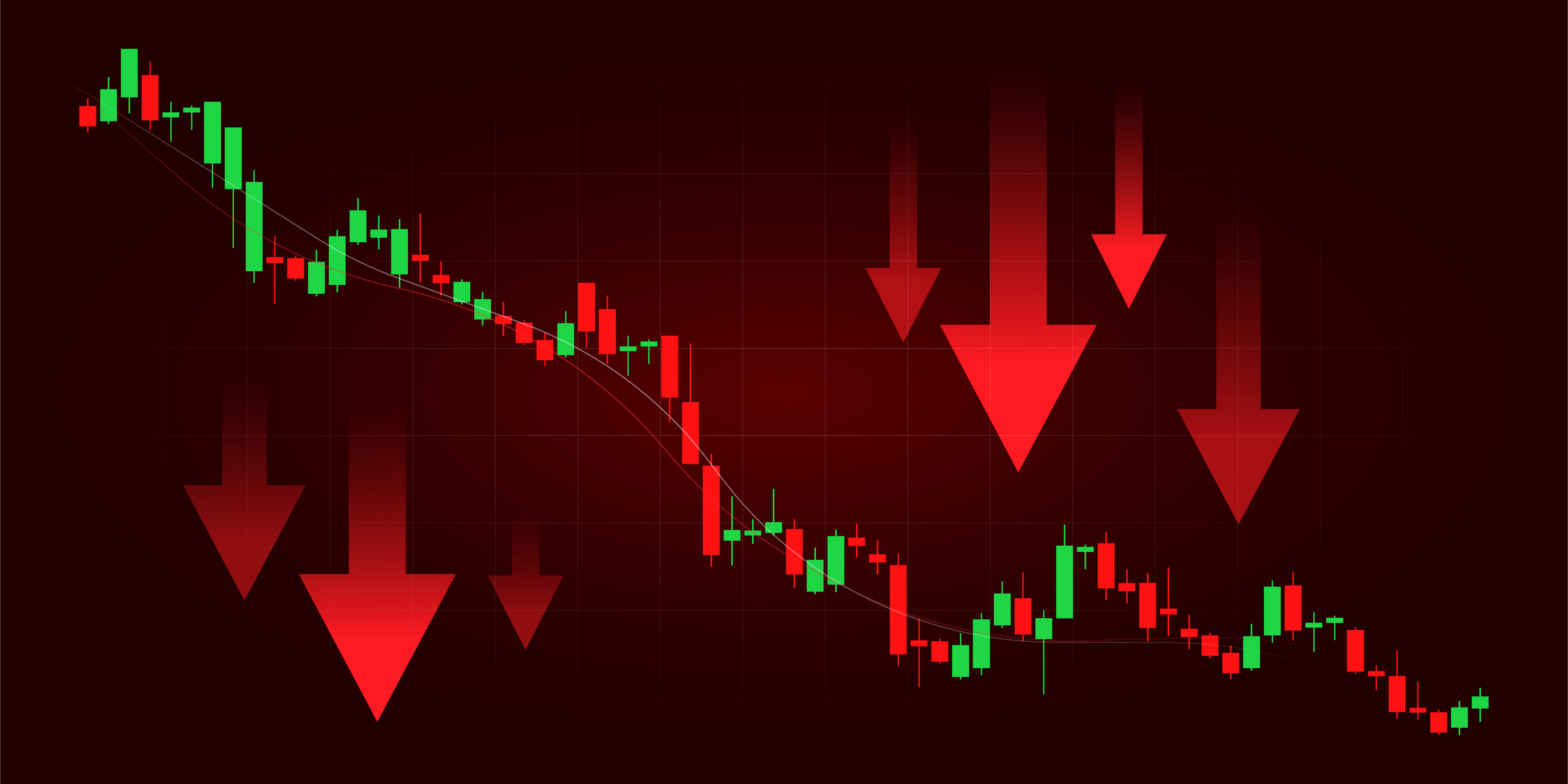Steady Income from Volatile Sources
Sudden sell-offs can be scary, but the income side of income investing delivers reliably.


Profit and prosper with the best of Kiplinger's advice on investing, taxes, retirement, personal finance and much more. Delivered daily. Enter your email in the box and click Sign Me Up.
You are now subscribed
Your newsletter sign-up was successful
Want to add more newsletters?

Delivered daily
Kiplinger Today
Profit and prosper with the best of Kiplinger's advice on investing, taxes, retirement, personal finance and much more delivered daily. Smart money moves start here.

Sent five days a week
Kiplinger A Step Ahead
Get practical help to make better financial decisions in your everyday life, from spending to savings on top deals.

Delivered daily
Kiplinger Closing Bell
Get today's biggest financial and investing headlines delivered to your inbox every day the U.S. stock market is open.

Sent twice a week
Kiplinger Adviser Intel
Financial pros across the country share best practices and fresh tactics to preserve and grow your wealth.

Delivered weekly
Kiplinger Tax Tips
Trim your federal and state tax bills with practical tax-planning and tax-cutting strategies.

Sent twice a week
Kiplinger Retirement Tips
Your twice-a-week guide to planning and enjoying a financially secure and richly rewarding retirement

Sent bimonthly.
Kiplinger Adviser Angle
Insights for advisers, wealth managers and other financial professionals.

Sent twice a week
Kiplinger Investing Weekly
Your twice-a-week roundup of promising stocks, funds, companies and industries you should consider, ones you should avoid, and why.

Sent weekly for six weeks
Kiplinger Invest for Retirement
Your step-by-step six-part series on how to invest for retirement, from devising a successful strategy to exactly which investments to choose.
Even investors who emphasize a flow of spendable cash and don't trade much tell me they hate volatile prices for their income-oriented securities. I'm with you, because I also dislike seeing sudden and scary sell-offs in yield-centric portfolio staples such as real estate investment trusts, oil-and-gas partnerships and dividend stocks. But the top priority for income seekers should be maximum assurance that interest and dividends will arrive in full and on time. And fortunately, despite the volatile market action of late, the income side of income investing (stock dividends and bond interest payments) remains reliable.
Dividend cuts and debt defaults are largely limited to cases of fraud or mismanagement. Bonds have regained some of the value they lost earlier in the year as medium- and long-term interest rates–notably the yield on 10-year Treasuries–have retreated amid renewed heavy demand, including by individuals pouring money into fixed-income mutual funds and exchange-traded funds. (Prices and yields move in opposite directions.) It's true that certain income investments look crazy expensive. Boeing (symbol BA, $339, yield 2%) has raised dividends 88% since 2015 to become as much a primo cash cow as a (now) high-flying industrial stock. That's helped double the price of the shares since then and sent the price-earnings ratio to nearly 25 times estimated earnings for the next 12 months. (Prices, yields and other data in this column are through April 20.)
Look beyond price. However, the price of the stock isn't always as important as the timely payment of interest and dividends. And that service is not suffering at all from the wild and woolly behavior of share prices.
From just $107.88 $24.99 for Kiplinger Personal Finance
Become a smarter, better informed investor. Subscribe from just $107.88 $24.99, plus get up to 4 Special Issues

Sign up for Kiplinger’s Free Newsletters
Profit and prosper with the best of expert advice on investing, taxes, retirement, personal finance and more - straight to your e-mail.
Profit and prosper with the best of expert advice - straight to your e-mail.
Here's an analogy: When a Boeing 767 takes off from New York City for San Francisco, the travelers might have paid anywhere from roughly $120 to $1,200 for their tickets. Yet all expect to arrive safely and at the same time (whether on schedule or late). Similarly, when Boeing pays close to $1 billion to its stockholders in March, June, September and December, some payees will have an average cost of $75 a share, for others it will be $175, and for a handful it will be more than the current share price. But everyone will get the same $1.71-per-share dividend.
Although Boeing might not always be able to raise dividends by leaps and bounds–and its price is at risk on any given day due to fears of escalating trade tensions–I urge you to stay aboard for the high and safe income. Among other virtues, Boeing generates $11.7 billion of free cash flow annually–enough to cover its $3.4 billion dividend tab several times over.
Boeing is but one example among many. The same rationale applies to AT&T (T, $35, 5.8%) and Verizon (VZ, $48, 4.9%), which pay out a combined $21 billion a year. Both companies can easily afford it, and the stocks are obvious keepers. Their shares have been up and down (mostly down of late), but that has no effect on the safety and constancy of the dividend payments. (For more income investing ideas, see Earn Up to 11%.)
All told, in a messy first quarter, 948 U.S. companies raised dividends, with an average hike of 7.6% from the first quarter of 2017. There were just 167 cuts or suspensions.
Most bond strategists I talk to don't believe that wild trading imperils your coupon payments, either. Robert Tipp, of the Prudential Insurance Company's massive bond-investment arm, is advising clients to stay the course as "a lot of this noise blows over." If you study the charts and the indexes, stock and bond prices are largely where they began this year, despite the occasional huge drops in the Dow Jones industrial average. Buying on the dips still makes sense. In March, REITs and utilities recovered much of what they lost in January and February. So for now, continue cashing your checks, hold on to what pays on schedule, and enjoy your summer.
Profit and prosper with the best of Kiplinger's advice on investing, taxes, retirement, personal finance and much more. Delivered daily. Enter your email in the box and click Sign Me Up.

Kosnett is the editor of Kiplinger Investing for Income and writes the "Cash in Hand" column for Kiplinger Personal Finance. He is an income-investing expert who covers bonds, real estate investment trusts, oil and gas income deals, dividend stocks and anything else that pays interest and dividends. He joined Kiplinger in 1981 after six years in newspapers, including the Baltimore Sun. He is a 1976 journalism graduate from the Medill School at Northwestern University and completed an executive program at the Carnegie-Mellon University business school in 1978.
-
 How Much It Costs to Host a Super Bowl Party in 2026
How Much It Costs to Host a Super Bowl Party in 2026Hosting a Super Bowl party in 2026 could cost you. Here's a breakdown of food, drink and entertainment costs — plus ways to save.
-
 3 Reasons to Use a 5-Year CD As You Approach Retirement
3 Reasons to Use a 5-Year CD As You Approach RetirementA five-year CD can help you reach other milestones as you approach retirement.
-
 Your Adult Kids Are Doing Fine. Is It Time To Spend Some of Their Inheritance?
Your Adult Kids Are Doing Fine. Is It Time To Spend Some of Their Inheritance?If your kids are successful, do they need an inheritance? Ask yourself these four questions before passing down another dollar.
-
 Stocks Struggle for Gains to Start 2026: Stock Market Today
Stocks Struggle for Gains to Start 2026: Stock Market TodayIt's not quite the end of the world as we know it, but Warren Buffett is no longer the CEO of Berkshire Hathaway.
-
 AI Stocks Lead Nasdaq's 398-Point Nosedive: Stock Market Today
AI Stocks Lead Nasdaq's 398-Point Nosedive: Stock Market TodayThe major stock market indexes do not yet reflect the bullish tendencies of sector rotation and broadening participation.
-
 Stocks Bounce Back With Tech-Led Gains: Stock Market Today
Stocks Bounce Back With Tech-Led Gains: Stock Market TodayEarnings and guidance from tech stocks and an old-school industrial lifted all three main U.S. equity indexes back into positive territory.
-
 Dow Adds 300 Points, Ends Losing Streak: Stock Market Today
Dow Adds 300 Points, Ends Losing Streak: Stock Market TodayThe Dow, the S&P 500 and the Nasdaq head into the weekend on high notes after posting gains for the first time since Monday.
-
 The Most Tax-Friendly States for Investing in 2025 (Hint: There Are Two)
The Most Tax-Friendly States for Investing in 2025 (Hint: There Are Two)State Taxes Living in one of these places could lower your 2025 investment taxes — especially if you invest in real estate.
-
 The Final Countdown for Retirees with Investment Income
The Final Countdown for Retirees with Investment IncomeRetirement Tax Don’t assume Social Security withholding is enough. Some retirement income may require a quarterly estimated tax payment by the September 15 deadline.
-
 President Trump Makes Markets Move Again: Stock Market Today
President Trump Makes Markets Move Again: Stock Market TodayThe White House is moving ahead with plans to reshape the Federal Reserve and to buy shares in more sectors and stocks.
-
 Stocks Are Up and Down on Fed Day: Stock Market Today
Stocks Are Up and Down on Fed Day: Stock Market TodayIn another sign of changing times, JPMorgan has partnered with Coinbase to enable cryptocurrency purchases with credit cards.